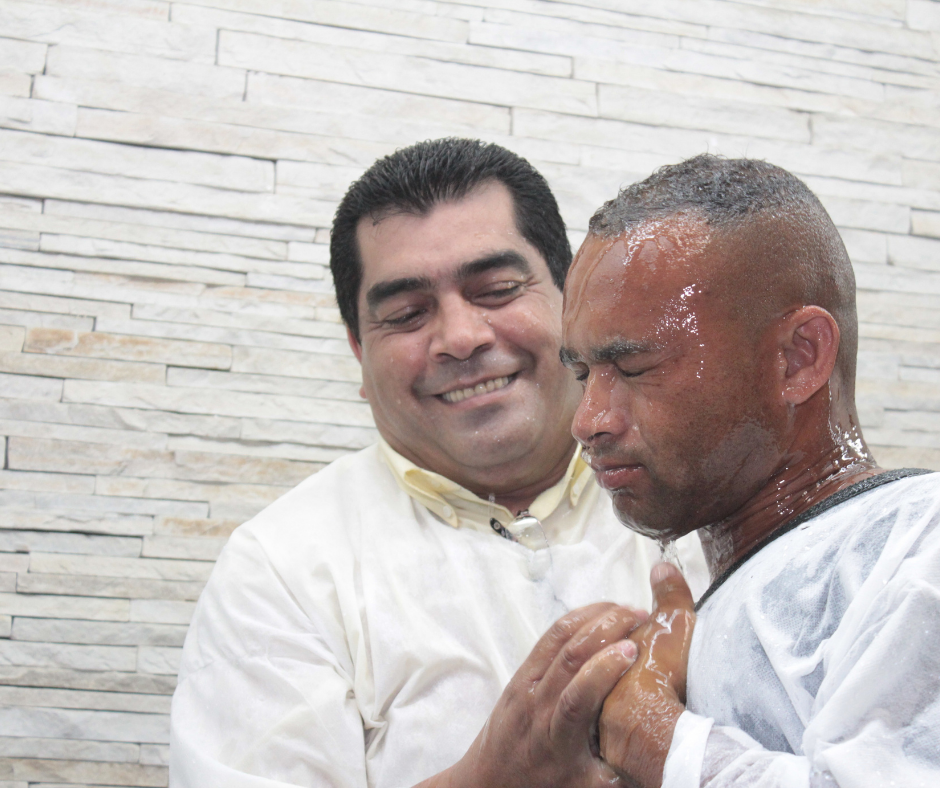Marks of a meaningless baptism: Part 1
Written by: David Stafford
Many religious-minded people agree that baptism is important. Few religious-minded people, however, practice scriptural baptism and believe it to be essential to salvation (Acts 2:38; 1 Pet. 3:21). Baptism and conversion are not synonymous terms. An individual can be baptized, but not be converted. It is helpful, therefore, to indicate the marks of a meaningless baptism to learn the marks of a meaningful baptism to be approved of God! Let us notice the mode of baptism to discover what is considered meaningless and what is considered meaningful.
Sprinkle or immersion
Religions drastically differ about the mode for baptism. The Catholic, Methodist, and Presbyterian religions sprinkle, and the Baptist and Pentecostal religions practice immersion.
God is not the author of confusion (1 Cor. 14:33). Therefore, multiple modes cannot be equally right! Only one mode can be right, and the Bible sets the standard for which mode is correct (Psa. 119:89, 160; John 17:17; 1 Pet. 1:22-25)!
The word baptism is a transliterated word from the Greek word baptizo which means “to dip, to immerse, to submerge” (Strong’s). John the Baptist (Immerser) baptized in Aenon, because there was much water there (John 3:23). It does not take much water to sprinkle, but it does take much water to immerse.
What did the apostles teach? 
The apostles taught immersion as they were guided by the Holy Spirit (John 16:13; Acts 2:38; 18:8). Paul expressed the mode of baptism as a burial (Rom. 6:3-4; Col. 2:12). Sprinkling is not the same as burying. One does not leave a deceased body partially uncovered. He ensures the body is completely under the ground!
Peter commanded convicted Jews to repent and be baptized (immersed) for the remission of sins…” (Acts 2:38).
An Immersion example
Notice the conversion of the Ethiopian eunuch. He desired to be baptized, because he was instructed of its essentiality to be saved (Acts 8:35-36). The Ethiopian eunuch went down into the water and came up out of the water (Acts 8:38-39). This detail of his conversion cannot be explained by any other mode than immersion! The Greek word rhantizo means “to sprinkle,” but we do not have an example of any of the apostles commanding individuals to be sprinkled to be saved. If a person is sprinkled his baptism is meaningless, because he has not been immersed. He has not done what those in the first century did to be saved. Immersion is the only mode approved of God!
Many modes appear to be approved of God, but the Book of books only expresses immersion as the proper mode of baptism (Acts 8:38-39). Immersion was preached by the apostles who were guided by the Holy Spirit into all truth (John 16:13; Acts 2:38; 16:14-15; 18:18).
The meaningful mode
God’s precepts to be saved have not changed from the first century to the twenty first century! May we examine ourselves to be sure that we were immersed into Christ for the remission of our sins (Acts 2:38), because that is only approved mode of baptism that is meaningful to God!

David Stafford
David Stafford has a Bachelor of Music Education degree from Delta State University, and he is a 2017 alumnus of Memphis School of Preaching. He is married to Nicole, and they have two children, James and Abigail. He preaches at Piedmont church of Christ in Piedmont, Alabama

Are We Speaking Where the Bible Speaks? Part 1
There is an important question that needs to be addressed, and that question is “Are we speaking where the Bible speaks?”

Who should we blame?
We are to blame for our own sins. It is not alway easy to choose the righteous path, but we should seek to pick the righteous paths rather than the sinful, the self-serving.

Speak where the bible speaks part 2
Are we speaking where the Bible speaks? We answer this question by looking at additional illustrations of not speaking where the Bible speaks, and we acknowledge the intention of speaking where the Bible speaks.

